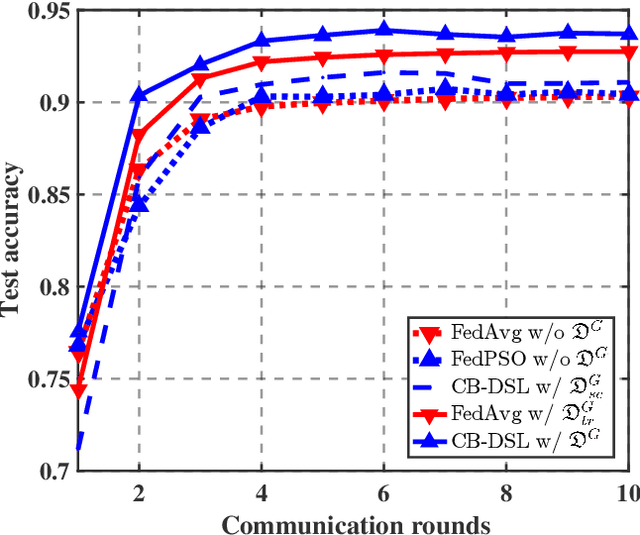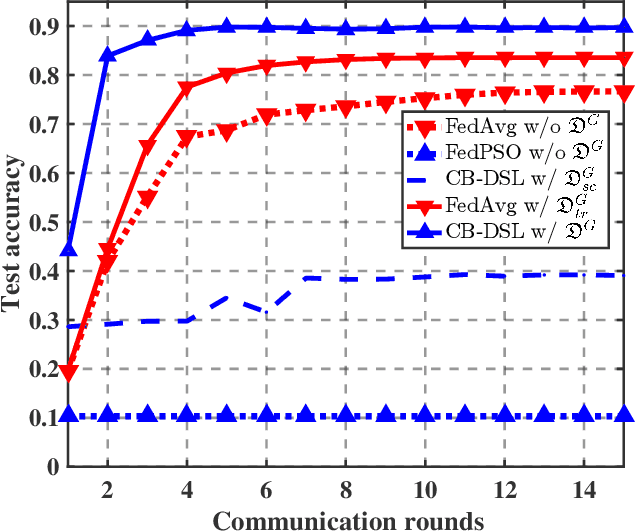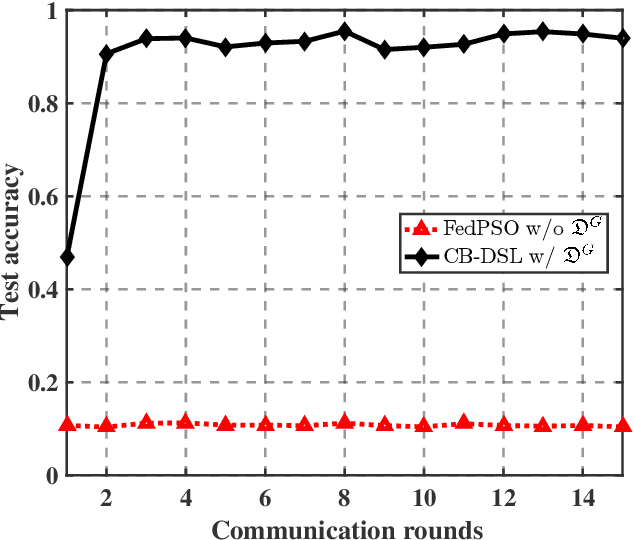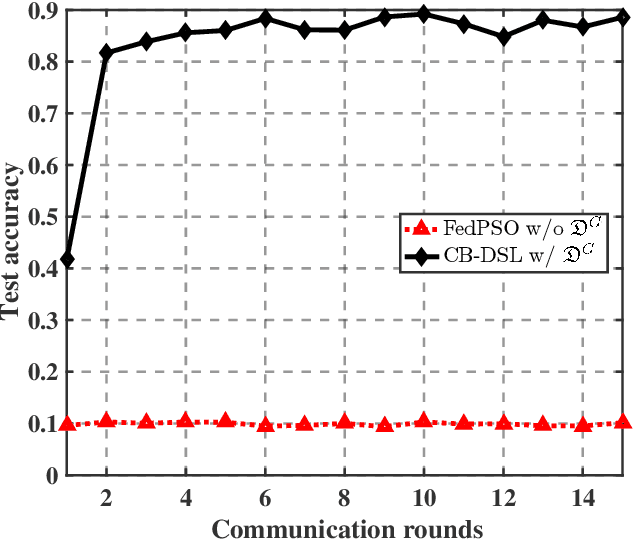CB-DSL: Communication-efficient and Byzantine-robust Distributed Swarm Learning on Non-i.i.d. Data
Paper and Code
Aug 10, 2022



The valuable data collected by IoT devices in edge networks together with the resurgence of ML stimulate the latest trend of edge AI. However, recent FL methods face major challenges including communication bottleneck, data heterogeneity and security concerns in edge IoT scenarios, especially when being adopted for distributed learning among massive IoT devices equipped with limited data and transmission resources. Meanwhile, the swarm nature of IoT systems is overlooked by most existing literature, which calls for new designs of distributed learning algorithms. Inspired by the success of biological intelligence (BI) of gregarious organisms, we propose a novel edge learning approach for swarm IoT, called communication-efficient and Byzantine-robust distributed swarm learning (CB-DSL), through a holistic integration of AI-enabled stochastic gradient descent and BI-enabled particle swarm optimization. To deal with non-i.i.d. data issues and Byzantine attacks, global data samples are introduced in CB-DSL and shared among IoT workers, which not only alleviates the local data heterogeneity effectively but also enables to fully utilize the exploration-exploitation mechanism of swarm intelligence. Further, we provide convergence analysis to theoretically demonstrate that the proposed CB-DSL is superior to the standard FL with better convergence behavior. In addition, to measure the effectiveness of the introduction of the globally shared dataset, we also conduct model divergence analysis by evaluating the distance between the data distribution at local IoT devices and the population distribution for the whole datasets. Numerical results verify that the proposed CB-DSL outperforms the existing benchmarks in terms of faster convergence speed, higher convergent accuracy, lower communication cost, and better robustness against non-i.i.d. data and Byzantine attacks.
 Add to Chrome
Add to Chrome Add to Firefox
Add to Firefox Add to Edge
Add to Edge